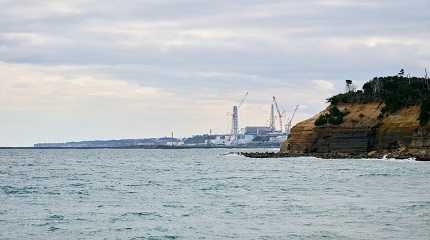
TOKYO, Aug 27 (Reuters) - Tests of seawater near Japan's Fukushima nuclear power plant have not detected any radioactivity, the environment ministry said on Sunday, days after authorities began discharging into the sea treated water used to cool damaged reactors.
Japan started releasing water from the wrecked Fukushima plant into the Pacific Ocean on Thursday, sparking protests in Japan and neighbouring countries, in particular China, which banned aquatic product imports from Japan.
Japan and scientific organisations say the water is safe after being filtered to remove most radioactive elements except for tritium, a radioactive isotope of hydrogen.
Because tritium is difficult to separate from water, the Fukushima water is diluted until tritium levels fall below regulatory limits.
The ministry's tests of samples from 11 points near the plant showed concentrations of tritium below the lower limit of detection - 7 to 8 becquerels of tritium per litre, the ministry said, adding that it "would have no adverse impact on human health and the environment".
Monitoring would be carried out "with a high level of objectivity, transparency, and reliability" to prevent adverse impacts on Japan's reputation, Environment Minister Akihiro Nishimura said in a statement.
The ministry would publish test results every week for the next three months at least, an official said.
Japan's fisheries agency said tests of fish from near the plant did not show any abnormalities. Its test on Saturday found no detectable levels of tritium.




